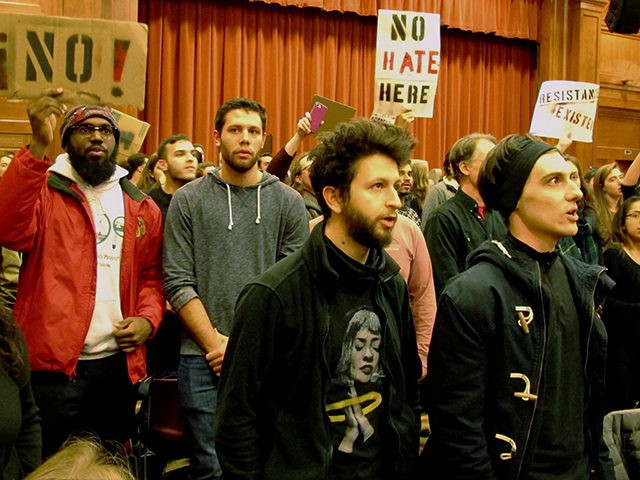During a congressional hearing on the state of free speech on college campuses held on Thursday, Middlebury professor Allison Stanger claimed that faculty at the college encouraged students to derail a February speaking event with Charles Murray.
“National security depends on” college students learning how to use their words instead of violence to counter offensive speech, Allison Stanger told members of the Senate Health, Education, Labor & Pensions Committee at its Thursday hearing. Stanger was speaking about her experience moderating a Middlebury event featuring social scientist Charles Murray earlier this year that descended into a riot.
“Students must feel free to speak their minds, make mistakes, and learn from them if they are to develop both intellectually and emotionally,” Stanger argued before the committee. “They must learn to challenge speech with more speech, to think for themselves rather than relying on somebody else to tell them what to think or do, as well as to reflect on how their words and actions affect others.”
“Last February, several of my students asked me to moderate a talk with the libertarian scholar Charles Murray. Dr. Murray was drowned out by students who never let him speak. We were forced to retreat to another location, to livestream our conversation. And he and I were intimidated and physically assaulted while trying to leave campus,” she said.
“Why did this happen in the United States of America on a bucolic college campus in the green mountains of Vermont?” she continued, “I think there are three reasons. First, any liberal arts college campus is something of a bubble. But Middlebury College is in the state of Vermont, making it a bubble within a bubble. In that context, Charles Murray was a lightning rod that he otherwise might not have been.
“Second, a minority of Middlebury faculty cheered on the protests and did not encourage their students to read Charles Murray or listen to him first before drawing their own conclusions about his work or his character,” she revealed. “Some faculty acknowledged publicly that they had not read a thing Charles Murray had written but still knew everything they needed to know about him from what they had read on the Southern Poverty Law Center website.”
“Third, some students believed that shutting down speech was a means to social justice. Some Middlebury faculty shared that view, thereby encouraging radical action,” she continued.
“We can and must do better. We need to teach students to think for themselves so that they are equipped for democratic citizenship and resisting peer pressure in their pursuit of self-knowledge, truth, and the good,” she finished. “Viewpoint diversity is thus an asset for any college or university. Nothing less than liberal education and the possibility of reasoned political debate is at stake in the debate over campus censorship. Universities exist to promote an arena in which ideas can be exchanged freely not to render value judgments on the ideas themselves.”

COMMENTS
Please let us know if you're having issues with commenting.